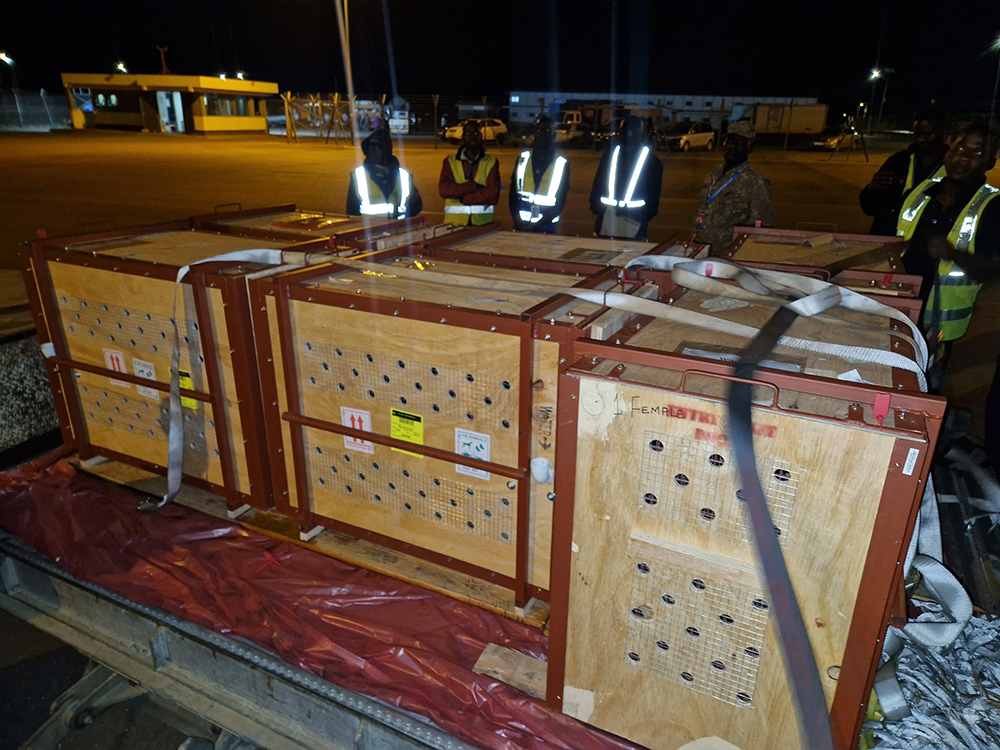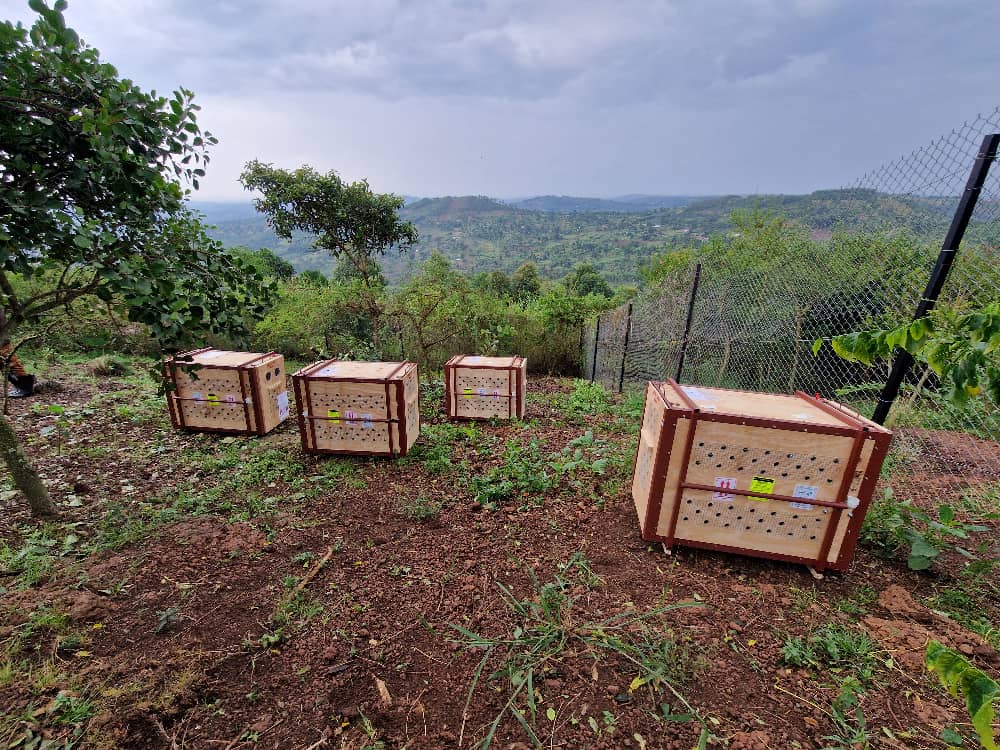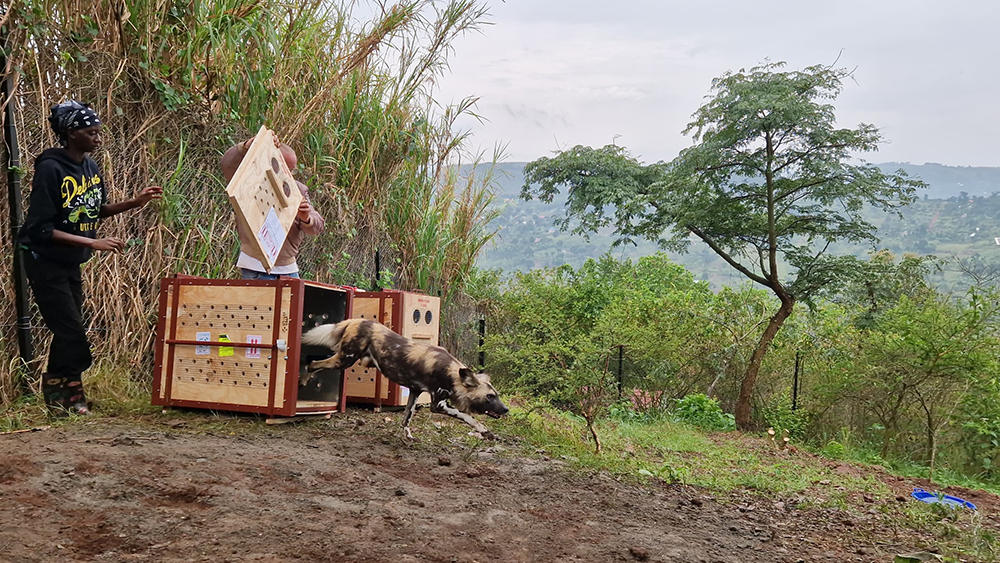African wild dogs return to Uganda after 60 years
African wild dogs once roamed Uganda’s savannahs but were declared nationally extinct by the 1960s due to habitat loss, human-wildlife conflict, disease, and targeted extermination campaigns.
An African wild dog released into the environment. (Courtesy)
By John Masaba
Journalists @New Vision
______________
For the first time in more than 60 years, African wild dogs (Lycaon pictus) are returning to Uganda, a major milestone in the country’s conservation efforts.
Spearheaded by the CTC Conservation Centre in Mpigi district, this 100% Ugandan-led initiative aims to reestablish a managed population of one of Africa’s most endangered carnivores.
On June 23, 2025, six wild dogs arrived at Entebbe International Airport from South Africa, joining two others already in care at CTC, bringing the total to eight. The long-term goal: breed and eventually reintroduce the species into suitable habitats across Uganda.
(Courtesy)

(Courtesy)
“This marks a vital first step in empowering homegrown conservation solutions,” said Thomas Price, Ugandan conservationist and founder of CTC. “With more national stakeholders involved, we can restore Uganda’s lost wildlife diversity for generations to come.”
African wild dogs once roamed Uganda’s savannahs but were declared nationally extinct by the 1960s due to habitat loss, human-wildlife conflict, disease, and targeted extermination campaigns.
In recent decades, there have been only unverified reports of sightings near the Kidepo Valley National Park border. The reintroduction through CTC is the first structured effort to reestablish the species.
Founded in 2015, CTC is a licensed wildlife breeding and education centre working with the tourism ministry (MTWA) and the Uganda Wildlife Authority (UWA).

(Courtesy)

(Courtesy)
The wild dogs will be housed in a secure, naturalistic environment, with a focus on breeding and public education.
UWA spokesperson Bashir Hangi welcomed the development.
“While we do have wild dogs in Uganda, they are not easily sighted. The individuals at CTC will give people a better chance to see them, which is good for awareness and tourism."
Uganda’s move to bring back the African wild dog signals a renewed commitment to ecological restoration and tourism growth. The country’s wildlife sector consistently ranks among its top three foreign exchange earners.
African wild dogs still roam parts of South Africa, Botswana, Namibia, Tanzania, Kenya, and other countries, but with fewer than 6,600 mature individuals left, their populations remain fragile according to conservationists.
Their diurnal behaviour, co-operative hunting, and highly social nature make them a standout attraction for wildlife tourism—often increasing visitor satisfaction and conservation investment in parks where they’re present.
By reintroducing wild dogs, Uganda not only reclaims a key species in its ecological history but also opens new pathways for conservation-driven development and education.
Conservationists hope their presence will spark public engagement, influence wildlife policy, and add a fresh layer to Uganda’s safari experience—beyond the traditional Big Five.